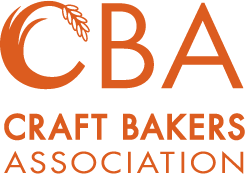Be prepared for new recycling regulations
The Government’s new Simpler Recycling regulations are set to take effect from March 31, bringing changes that will impact bakeries and other businesses across England. Understanding and preparing for these regulations will be crucial to maintaining compliance and ensuring smooth operations. Here’s what bakers need to know and do to adapt to the new waste separation rules effectively.
Who needs to comply?
All workplaces, including bakeries, with 10 or more employees must comply with the new regulations by March 31 this year. Micro-businesses (those with fewer than 10 employees) have until March 31, 2027 to adhere to the rules.
Failure to comply can lead to a compliance notice from the Environment Agency, and continued non-compliance could result in enforcement action.
What waste must be separated?
Under the new rules, businesses must separate and collect the following waste streams:
· Dry recyclables – plastic, metal, glass, paper, and cardboard.
· Food waste – including uneaten food, food prep waste, and food that does not meet quality standards.
· Residual waste (black bin waste) – contaminated materials that cannot be recycled.
Steps for bakers to take
Update your waste collection contract
· Ensure that your waste collector can handle all the required waste streams. If they cannot, you will need to engage additional service providers.
Determine the right bin sizes
· Many waste collectors offer recommendations based on business type and volume of waste.
· Alternatively, track your waste production for a few weeks to estimate your needs.
Decide collection frequency
· Align with your existing waste schedule while considering factors such as space, security and food waste storage time (especially in warmer months).
Purchase or rent bins
· Renting bins may offer flexibility as you adjust to the new requirements and assess your waste levels.
Ensure compliance for raw meat and bakery waste
· Any bakery products that have come into contact with raw meat must be collected separately as Category 3 animal by-product waste.
Educate staff and customers
· Train employees on correct waste sorting.
· Consider placing front-of-house bins for customers to use, mirroring your internal waste separation system.
Additional considerations
· If your bakery operates within a retail park or shopping centre, the site management is responsible for ensuring compliance.
· The Environment Agency will focus on guidance over penalties initially, but businesses should take proactive steps to avoid future sanctions.
· Blue roll, dirty paper and polyester napkins should be disposed of in the black bin as they are typically contaminated.
Final thoughts
By taking early action to comply with the new Simpler Recycling regulations, bakeries can not only avoid fines and enforcement actions but also enhance their environmental credentials. Customers increasingly favour businesses that demonstrate sustainable practices, so embracing recycling could also be a brand-boosting opportunity.
Start planning now, update your waste contracts and educate your team to ensure a smooth transition before the deadline.
